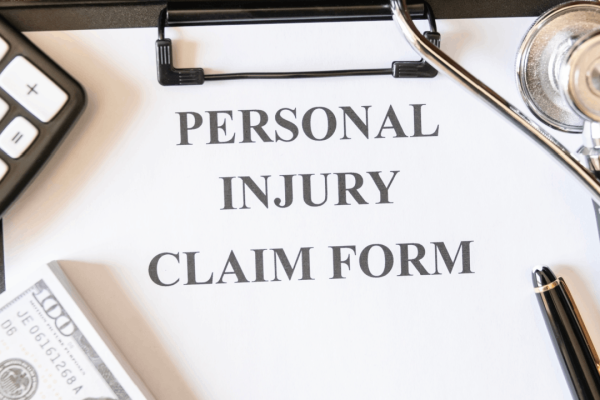
When Should You Consider Suing After a Car Accident?
Understanding Suing After a Car Accident Basics
Suing after a car accident can provide crucial financial recovery when insurance falls short or fault is disputed. This comprehensive guide explains when litigation makes sense, what evidence you’ll need, and how to navigate the legal process successfully. Whether you’re dealing with serious injuries, significant property damage, or an uncooperative insurance company, understanding your legal options is essential for protecting your rights and securing fair compensation.
Critical Timing: When Suing After a Car Accident Makes Sense
Determining when to pursue legal action after a car accident requires careful evaluation of your circumstances. While many accidents resolve through insurance claims, certain situations demand the expertise of an attorney and the formal legal process.
Insurance Settlement Inadequacy
Insurance companies frequently offer settlements that fall short of covering your actual damages. When insurers deny valid claims or present lowball offers that don’t account for medical expenses, lost wages, and pain and suffering, litigation becomes necessary. A study by the Insurance Research Council found that accident victims who hired attorneys received 3.5 times more compensation than those who handled claims independently.
Consider legal action when insurance companies:
- Deny coverage despite clear liability evidence
- Offer settlements below medical costs alone
- Refuse to negotiate in good faith
- Delay payment unreasonably
- Dispute the extent of your injuries
Disputed Liability Scenarios
Complex accidents involving disputed fault determination often require court intervention. When multiple parties point fingers or insurance adjusters disagree on liability percentages, a lawsuit can clarify responsibility through expert analysis and witness testimony.
Serious Injury Thresholds
Severe injuries requiring long-term care, permanent disability, or significant lifestyle changes typically warrant legal action. Insurance policy limits may prove insufficient for catastrophic injuries, making it essential to pursue additional compensation through litigation.
Real-world example: A 2023 Maryland case involving a rear-end collision resulted in a $2.3 million verdict for a victim with traumatic brain injury, compared to the initial $50,000 insurance offer.
Multiple-vehicle accidents and uninsured motorist situations also create complexity that often necessitates professional legal intervention to ensure fair compensation.
Evidence Requirements: Building Your Suing After a Car Accident Case
Successful car accident litigation depends heavily on comprehensive evidence collection. The strength of your case directly correlates with the quality and completeness of documentation supporting your claims for damages and establishing fault.
Medical Documentation Standards
Medical evidence forms the cornerstone of any personal injury lawsuit. Your medical records must clearly establish the connection between the accident and your injuries, document the extent of harm, and provide prognosis for recovery.
Essential medical documentation includes:
- Emergency room records from the accident date
- All subsequent medical treatment records
- Diagnostic imaging results (X-rays, MRIs, CT scans)
- Physical therapy and rehabilitation records
- Prescription medication records
- Medical expert opinions on permanent impairment
- Future medical care cost projections
Scene Evidence Collection
Immediate accident scene evidence provides objective proof of what occurred. Police reports offer official documentation, but additional evidence collection proves vital.
Critical scene evidence encompasses:
- High-resolution photographs from multiple angles
- Video footage from traffic cameras or dashcams
- Witness contact information and statements
- Physical evidence like skid marks or debris
- Weather and road condition documentation
Financial Loss Proof
Comprehensive financial documentation substantiates your economic damages claim. This includes wage statements, tax returns, employment records, and receipts for accident-related expenses.
Timeline consideration: Evidence collection should begin immediately after the accident, as crucial details disappear quickly and witness memories fade over time. The Federal Motor Carrier Safety Administration (FMCSA) at fmcsa.dot.gov provides specific guidance for accidents involving commercial vehicles and trucks.
Step-by-Step: The Suing After a Car Accident Process
Understanding the litigation process helps accident victims prepare for the journey ahead and make informed decisions about their cases. Car accident lawsuits follow a structured timeline that can span months or years, depending on case complexity.
Pre-Litigation Phase
The process begins with an initial consultation where attorneys evaluate your case merits, potential damages, and likelihood of success. During this phase, your lawyer will gather evidence, obtain medical records, and attempt settlement negotiations with insurance companies.
Most attorneys require a signed retainer agreement and will work on a contingency fee basis, meaning you pay nothing unless your case succeeds. The pre-litigation phase typically lasts 3-6 months, during which your attorney builds the strongest possible case foundation.
Case evaluation factors include:
- Severity of injuries and medical expenses
- Clear liability evidence
- Insurance coverage limits
- Defendant’s ability to pay judgments
- Statute of limitations considerations
Discovery and Investigation
If settlement negotiations fail, your attorney files a formal lawsuit, beginning the discovery phase. This intensive fact-finding period allows both sides to gather evidence through depositions, document requests, and expert witness preparation.
Discovery typically involves:
- Written interrogatories requiring sworn answers
- Document production requests
- Depositions of parties and witnesses
- Independent medical examinations
- Expert witness retention and testimony preparation
This phase often lasts 12-18 months and provides the most comprehensive case development. Many cases settle during discovery as both sides gain clearer understanding of case strengths and weaknesses.
Trial Preparation
If cases don’t settle during discovery, attorneys enter intensive trial preparation. This involves finalizing witness lists, preparing exhibits, developing opening and closing arguments, and conducting practice sessions.
Settlement vs. verdict considerations: Approximately 95% of personal injury cases settle before trial. Settlements provide guaranteed compensation and avoid trial uncertainty, while verdicts can potentially yield higher awards but carry risk of unfavorable outcomes.
The entire process from accident to resolution averages 18-36 months, though complex cases involving severe injuries or disputed liability may take longer. Your attorney’s experience and case management skills significantly impact timeline efficiency and ultimate success.
Financial Analysis: Costs and Compensation in Suing After a Car Accident
Understanding the financial implications of pursuing legal action helps accident victims make informed decisions about whether litigation makes economic sense for their specific circumstances.
Recoverable Damages Categories
Car accident lawsuits allow recovery for multiple damage types. Economic damages include medical expenses, lost wages, property damage, and future earning capacity. Non-economic damages encompass pain and suffering, emotional distress, and loss of life enjoyment. In cases involving gross negligence, punitive damages may also apply.
Compensation Comparison:
Outcome Type | Average Settlement | Average Verdict | Timeline |
Insurance Only | $15,000-$25,000 | N/A | 2-6 months |
Lawsuit Settlement | $45,000-$85,000 | N/A | 12-18 months |
Trial Verdict | N/A | $95,000-$150,000 | 24-36 months |
According to Insurance Research Council data, represented claimants receive 40% higher settlements on average than unrepresented individuals.
Legal Cost Structure
Most personal injury attorneys work on contingency fees, typically ranging from 25-40% of recovery amounts. Additional costs include court filing fees ($300-$500), expert witness fees ($2,000-$10,000), and medical record acquisition costs.
Contingency arrangements eliminate upfront costs but reduce final compensation. Alternative fee structures include hourly billing or hybrid arrangements combining reduced contingency rates with hourly components.
Cost-benefit analysis considerations: Cases with clear liability, significant damages, and adequate insurance coverage typically justify litigation costs. Smaller claims under $25,000 may not economically support lawsuit expenses. For insurance regulatory guidance and complaint filing, contact your state’s insurance commissioner or visit the National Association of Insurance Commissioners (NAIC) at naic.org.
Common Pitfalls: Mistakes When Suing After a Car Accident
Avoiding critical mistakes can mean the difference between successful recovery and case dismissal. Understanding common pitfalls helps accident victims protect their rights and maximize compensation potential.
Critical mistakes to avoid:
- Missing statute of limitations deadlines (typically 2-3 years)
- Failing to seek immediate medical attention after accidents
- Posting about accidents or injuries on social media platforms
- Accepting initial settlement offers without legal consultation
- Hiring attorneys without personal injury experience
- Providing recorded statements to opposing insurance companies
- Failing to document all accident-related expenses
Real case example: A 2022 Virginia case was dismissed when the plaintiff’s Facebook posts showing physical activities contradicted disability claims, resulting in zero recovery despite legitimate injuries.
Social media presents particular dangers, as insurance companies routinely monitor claimants’ online activity. Photos showing physical activities, travel, or social events can undermine injury claims regardless of context.
Prevention strategy: Consult experienced personal injury attorneys immediately after serious accidents, maintain consistent medical treatment, avoid social media posting about your case, and document all accident-related impacts on your life.
Early settlement offers typically represent fractions of true case value, as insurance companies attempt to resolve claims before full damage extent becomes apparent.
Strategic Decision: Should You Start Suing After a Car Accident Now?
Making the decision to pursue litigation requires careful evaluation of your specific circumstances, potential outcomes, and long-term implications. Several key factors should guide this critical choice.
Decision-making framework recap: Successful lawsuits typically involve clear liability, significant damages exceeding insurance coverage, adequate defendant assets, and strong evidence supporting your claims. Cases with disputed fault, minimal injuries, or insufficient insurance coverage may not justify litigation costs.
Urgency indicators for legal action:
- Insurance company bad faith or unreasonable settlement offers
- Severe injuries requiring ongoing medical treatment
- Disputed liability with multiple parties involved
- Uninsured or underinsured motorist situations
- Permanent disability or disfigurement
- Lost earning capacity or career impact
When to consult an attorney immediately: Contact legal counsel within days of serious accidents, particularly those involving hospitalization, disputed fault, or significant property damage. Early attorney involvement preserves evidence, prevents statement mistakes, and ensures proper case development from the beginning.
Long-term impact considerations: Successful litigation provides comprehensive compensation for all damages, while insurance settlements often leave victims partially compensated. Consider your total losses, future needs, and recovery timeline when making this crucial decision. Time limitations make early action essential for preserving all legal options. The Consumer Financial Protection Bureau (CFPB) at consumerfinance.gov offers additional resources for understanding insurance practices and consumer rights in accident claims.
Next Steps: Getting Help with Suing After a Car Accident
Don’t let insurance companies shortchange your recovery after a serious car accident. If you’re considering suing after a car accident, contact our experienced personal injury attorneys for a free case evaluation. We’ll review your situation, explain your legal options, and help you understand whether litigation is right for your specific circumstances.
Frequently Asked Questions
1. How long do I have for suing after a car accident?
Most states allow 2-3 years from the accident date for filing personal injury lawsuits, though this varies by jurisdiction. Some states have shorter deadlines for property damage claims. Consult an attorney immediately to ensure you don’t miss critical deadlines.
2. Is suing after a car accident worth the time and expense?
Suing after a car accident is typically worthwhile when insurance settlements don’t cover your full damages, fault is disputed, or you have serious injuries requiring extensive treatment. An experienced attorney can evaluate whether your case justifies litigation costs.
3. Can I handle suing after a car accident without a lawyer?
While legally possible, suing after a car accident without professional representation significantly reduces your chances of success. Insurance companies have experienced legal teams, and personal injury law involves complex procedures and evidence requirements.
4. What damages can I recover when suing after a car accident?
Successful car accident lawsuits can recover medical expenses, lost wages, property damage, pain and suffering, and future care costs. Punitive damages may be available in cases involving drunk driving or extreme negligence.
5. How much does suing after a car accident typically cost?
Most personal injury attorneys work on contingency fees (typically 33-40% of recovery), meaning no upfront costs. Court filing fees and expert witness costs may apply, but many firms advance these expenses and recover them from settlements or verdicts.
Key Takeaways
- Timing Matters: Suing after a car accident becomes necessary when insurance settlements are inadequate or fault is disputed
- Evidence Collection: Strong medical documentation, scene evidence, and financial records are crucial for successful litigation
- Process Understanding: Car accident lawsuits involve multiple phases from filing through potential trial, typically taking 6-18 months
- Cost Considerations: Contingency fee arrangements make legal representation accessible, with potential recovery far exceeding litigation costs
- Professional Guidance: Experienced personal injury attorneys significantly improve outcomes compared to self-representation in complex accident cases
Free Accident Claim Review
Complete the form to have an attorney review your accident claimCOMPLETE THE FORM TO BE CONNECTED WITH AN ACCIDENT ATTORNEY
No Matching Partners at the Moment
Thank you for your inquiry but there are no matches for you at this time. Please come back later and try again.
Recent Posts
- What Are Signs of a Good Settlement Offer From Insurance Companies?
- What Do Lawyers Charge for Personal Injury Claims? Fee Structure Guide
- How Much Do Most Personal Injury Cases Settle For in 2025?
- What Should I Expect From My Personal Injury Lawyer During Your Case?
- What Is the Role of a Personal Injury Lawyer in Your Accident Claim?
Archives
- January 2026
- December 2025
- November 2025
- October 2025
- September 2025
- August 2025
- July 2025
- June 2025
- May 2025
- March 2025
- February 2025
- January 2025
- October 2024
- September 2024
- August 2024
- July 2024
- June 2024
- May 2024
- April 2024
- March 2024
- February 2024
- January 2024
- December 2023
- November 2023
- October 2023
- September 2023
- August 2023
- July 2023
- June 2023
- May 2023
- March 2023
- February 2023
- January 2023
- November 2022
- October 2022
- September 2022
- August 2022
- May 2022
- April 2022
- March 2022
- February 2022
- January 2022
- December 2021
- November 2021





